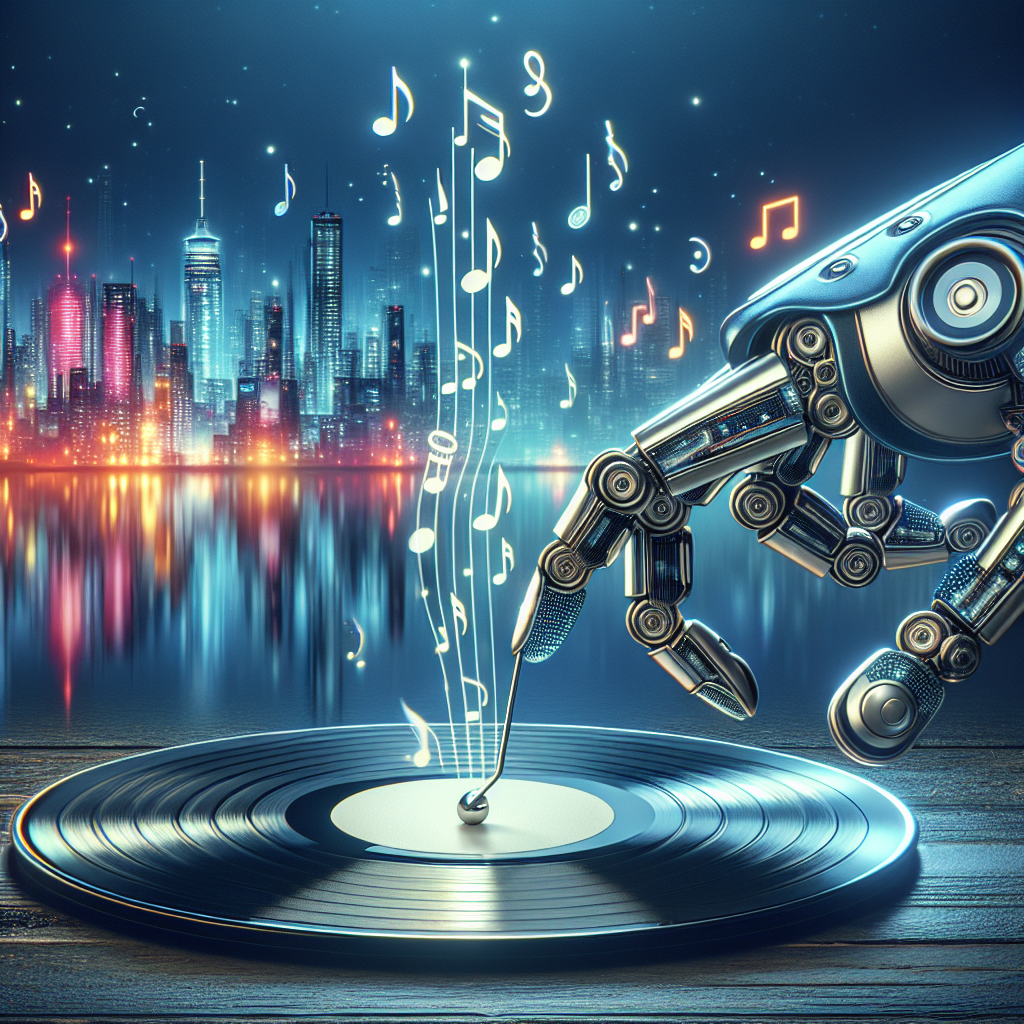AI and the Future of Music Consumption: What Does It Mean for Artists?
Artificial Intelligence (AI) has been revolutionizing various industries, and the music industry is no exception. With the rise of streaming platforms and personalized recommendation algorithms, AI has significantly impacted the way people discover, consume, and create music. Artists are now facing a new landscape where AI plays a crucial role in shaping their careers and connecting them with their audiences. In this article, we will explore the implications of AI on the future of music consumption and what it means for artists.
AI and Music Recommendation Algorithms
One of the most prominent ways AI is changing the music industry is through personalized recommendation algorithms. Streaming platforms like Spotify, Apple Music, and Pandora use AI to analyze users’ listening habits and preferences to curate personalized playlists and recommendations. These algorithms take into account factors such as listening history, genre preferences, mood, and even the time of day to suggest music that is likely to resonate with the user.
For artists, this means that their music is being exposed to a wider audience and potentially reaching listeners who may not have discovered them otherwise. However, it also means that competition is fiercer than ever, as artists vie for a spot on users’ personalized playlists. To stand out in a sea of recommendations, artists need to focus on creating high-quality, engaging music that resonates with listeners on a personal level.
AI and Music Creation
AI is also playing a role in the creation of music itself. From AI-generated music compositions to AI-powered tools for music production, artists are increasingly turning to AI to enhance their creative process. AI can analyze vast amounts of data to identify trends, patterns, and insights that can inform the creation of new music. It can also assist in tasks such as generating melodies, harmonies, and rhythms, or even producing entire songs autonomously.
While AI has the potential to streamline the music production process and spark new creative ideas, it also raises questions about the role of human creativity in music. Can AI truly replicate the emotional depth and nuance of human expression? Will AI-generated music ever be able to capture the essence of what makes music truly meaningful to listeners? These are questions that artists must grapple with as they navigate the evolving landscape of AI-powered music creation.
AI and Marketing
In addition to music recommendation and creation, AI is also transforming the way artists market and promote their music. AI-powered marketing tools can analyze data on listener demographics, behaviors, and engagement to help artists target their promotional efforts more effectively. From identifying potential fans to optimizing social media campaigns, AI can provide valuable insights that can help artists reach a wider audience and grow their fan base.
However, AI also raises concerns about data privacy and the ethical use of personal information. As artists leverage AI for marketing purposes, they must ensure that they are transparent about how they collect and use data, and that they prioritize the privacy and security of their fans. Building trust with listeners is essential in an age where data-driven marketing strategies are becoming increasingly prevalent.
FAQs
Q: Will AI replace human musicians?
A: While AI has the potential to enhance and augment the creative process for musicians, it is unlikely to replace human musicians entirely. AI may be able to generate music autonomously, but it lacks the emotional depth and nuance that human musicians bring to their craft. Human creativity and expression are irreplaceable aspects of music that AI cannot replicate.
Q: How can artists leverage AI to enhance their music careers?
A: Artists can leverage AI in a variety of ways to enhance their music careers. They can use AI-powered tools for music production, marketing, and promotion to streamline their workflow, reach a wider audience, and grow their fan base. By embracing AI as a tool for creativity and innovation, artists can stay ahead of the curve and stand out in a competitive industry.
Q: What are the ethical implications of AI in the music industry?
A: The rise of AI in the music industry raises important ethical considerations around data privacy, transparency, and the impact on human creativity. Artists must be mindful of how they collect and use data, prioritize the privacy and security of their fans, and ensure that AI is used in a responsible and ethical manner. Building trust with listeners is essential in an age where data-driven marketing strategies are becoming increasingly prevalent.
In conclusion, AI is transforming the music industry in profound ways, from personalized music recommendations to AI-generated music compositions. For artists, AI presents both opportunities and challenges as they navigate a rapidly evolving landscape where technology plays an increasingly central role. By embracing AI as a tool for creativity, innovation, and marketing, artists can leverage its potential to enhance their music careers and connect with audiences in new and meaningful ways. However, it is essential for artists to approach AI with caution, mindfulness, and a strong commitment to ethical principles to ensure that they are using this technology responsibly and in the best interests of their fans and listeners.

